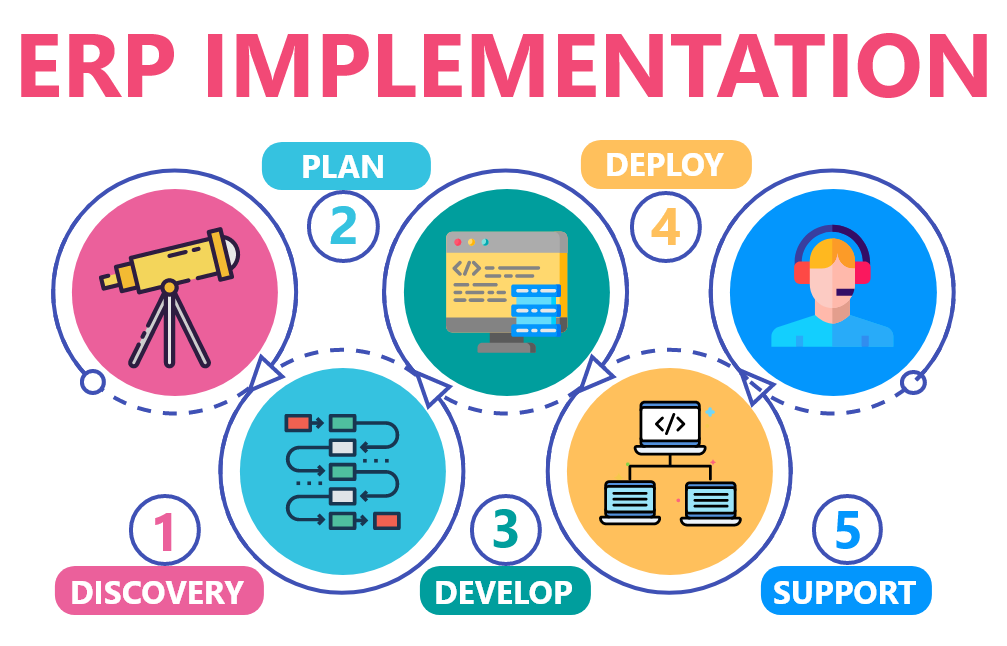1. Select the Right Project Team
Establish a strong project team for ERP implementation success. Typically, these are representatives of key business groups who understand business processes, work well with others, and are respected by executive management. Your team should also include a project manager and an executive sponsor, who can help adjust business priorities, get more buy-in, and pull in more resources if required. This team should help establish the top-level goals, requirements, and KPIs and ensure that the ERP project stays on time and budget.
2. Have Clear Requirements and KPIs in Place
Your team should have a clear vision of what you need to achieve with your ERP implementation. Establish precise requirements, which are aligned with your business goals. It is crucial to assess what you want to accomplish and how each business process can be improved. After you have a solid understanding of key requirements, identify specific key performance indicators (KPIs) to help track and measure the success of your ERP implementation.
3. Select the Right ERP Implementation Partner
Your ERP partner is also a key component to a successful ERP implementation. Research and choose an ERP partner that not only has the expertise and experience in your industry but also aligns with your company’s overall goals and values. When you’re picking a partner, research and interview their customer references, and confirm that they understand how your ERP system will support your business processes. Finally, confirm whether they can provide training and support after your software goes live.
4. Gather End-User Feedback Throughout
Collect feedback from your end-users throughout the entire implementation process for a smoother deployment. This will help you understand how employees work and interact with others and their daily obstacles in the earlier stages. Feedback will also help guide the implementation so that the system can address real user needs. After the go-live, end-user feedback can help identify the problems and give ideas for future improvements.
5. Ensure Your Data is Clean
How clean is your data? It’s best to begin assessing your data’s accuracy early on, as it is an essential factor of project success. The master data needs to be complete and accurate since it affects all ERP implementation phases, including testing and training your end-users. Before a data migration, establish consistent data definitions and formats and make sure you have consistent data practices across the board.
6. Create a Change Management Plan
An effective change management plan will help your employees adapt to the new ERP system faster, with a higher success rate. For effective change management, a company should set proper expectations early in the implementation process. Being by identifying who will be affected by the change, create a communications plan for stakeholders, and communicate what changes are coming coupled with compelling businesses reasons. Provide frequent project updates and explain the expectations of each employee for the project to succeed.
7. Ensure That There Is Training and Support
There should be a solid training program for employees, based on their roles—for instance, project team training, IT team training, business user training, etc. You should also have an on-going training program in place for when new employees join the company. After the go-live date, having proper support is also critical, as your employees come across issues and have questions.


